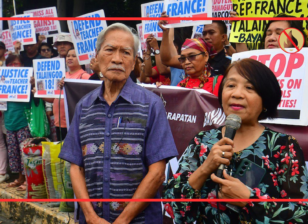Racism and Islamophobia drive muslim professionals to exit France
FRANCE- there is a “climate of Islamophobia” that is driving French Muslims to immigrate to the UK and Canada.
Why are muslim professionals leaving France?
Muslim women in France experience significant prejudice, which results in a lack of social acceptability, particularly for those who are clearly recognized as Muslims. This frequently forces people to look for employment alternatives outside of France. Although the strong laws prevent women who wear headscarves from working in the public sector altogether, they serve as a foundation for discrimination against headscarves in the private sector and reinforce Islamophobia in society at large. Because of this, even though these women were born and raised in France and have advanced degrees and professional abilities to benefit the nation, wearing a hijab is not accepted in society.
In addition to having a detrimental influence on professional advancement and general well-being, the hijab prohibition also causes hijab-wearing women and girls to be shunned in schools. Furthermore, despite their desire to give back to French society, women who wear headscarves are not permitted to volunteer in educational settings in order to contribute their knowledge and expertise. Another area where Muslim women feel excluded in the nation is when they are prevented from taking part in civil society activities. Due to the extent of Islamophobia in France, many French Muslim professionals have already made the decision to leave the country and pursue their professions overseas.
Is Islamophobia forcing muslims out of France?
Those who want to stay in the nation must also make tough choices: some decide to give in to peer pressure and take off their hijabs, while others decide to never work in order to shield themselves from prejudice. In France, prejudice against Muslims in society and governmental policies make it impossible to engage with the French Muslim population and people in an objective manner. The issue is made worse by the lack of legislation that focuses on finding solutions for a minority that accounts for 10% of the population, particularly for women. By asserting that it is immune to the influence of religion, the government hopes to establish a society.
The secular laws that forbid the public display of “ostentatious” religious symbols, however, stigmatize a large number of devout French residents, especially Muslim women who wear headscarves. France outlawed religious symbols, such as hijabs, in schools in 2004. In 2010, the country also forbade the wearing of full-face veils in public. Education Minister Gabriel Attal further declared his intention to forbid students from wearing loose, modest gowns, or abayas, in a recent television interview. When such policies are implemented by institutions, they legitimate Islamophobia in a variety of public and private domains and encourage prejudice and discrimination against Muslims. The government continues to defend these limitations under the pretext of secularism, even in the face of the UN’s 2018 declaration that the face veil ban violates human rights, its request that France reconsider its ban on full face coverings, and its criticism of the most recent decision regarding the 2024 Olympics as discriminatory against women.
How does racism affect muslim professionals in France?
According to arabnews, The French government adheres to a secularist doctrine known as laicite, which prohibits the use of religious symbols in the legal, public service, and educational fields. One of the co-authors of the book, Olivier Esteves, claims that a conflict of ideals results from the fact that many of the Muslims who are departing are among the most pious and professionally ambitious. As reported by aa, It aims to investigate how the French ban on the headscarf influences the experiences, decisions, and labor force participation of French women who wear headscarves and have either left or plan to leave the country in order to maintain their professional lives. This paper makes the case that the nation’s ban on the headscarf causes institutional discrimination as well as social Islamophobia. The results should provide knowledge and suggestions to the body of research on discrimination along the gender-Islamophobia axis for policymakers and non-governmental organizations.
Call to action: Boycott Pairs Olympics 2024
Approximately 7 million Muslims reside in France, accounting for 10% of the nation’s total population. The Muslim community, which is greater than the populations of several European nations, is subject to institutional and social discrimination as a result of the rise of Islamophobia in recent decades.
With its strong secular policies and Islamophobic and xenophobic climate, the French government actively meddles in people’s lives, even if societal acceptance of Muslims in the West remains a social issue. Here the reason for boycotting this event is clear. Fans and the public should boycott this event so the government may realize his mistakes.





